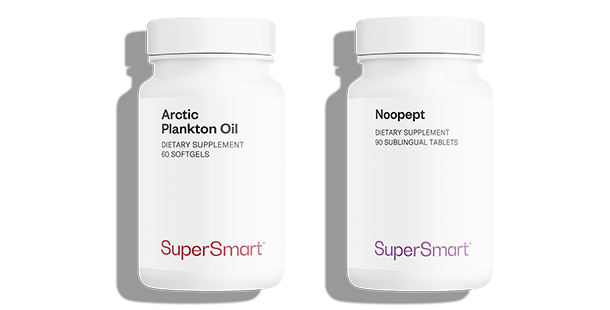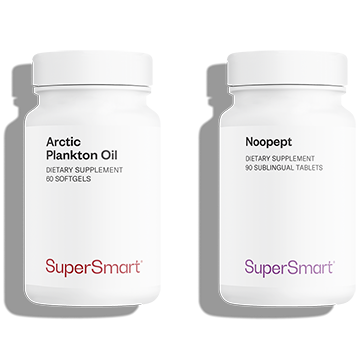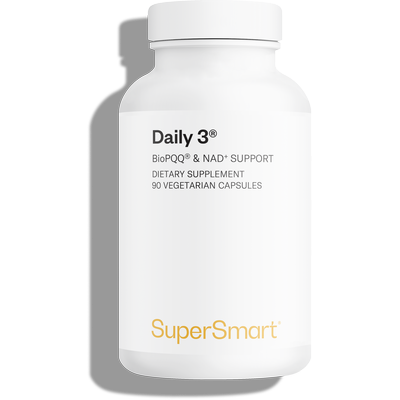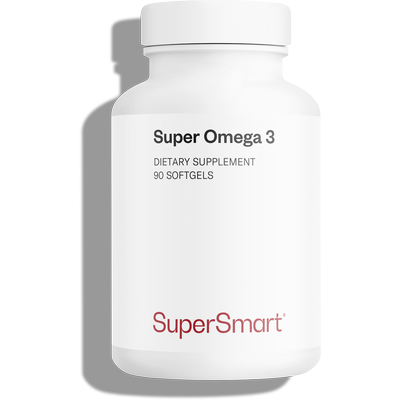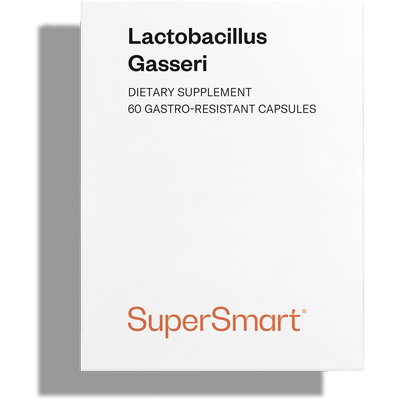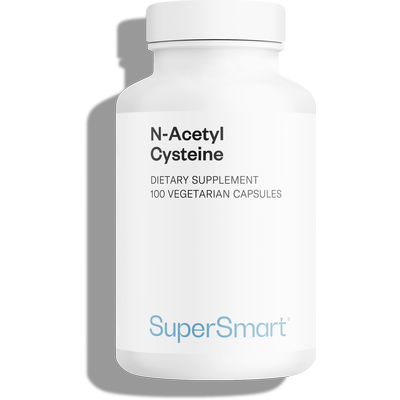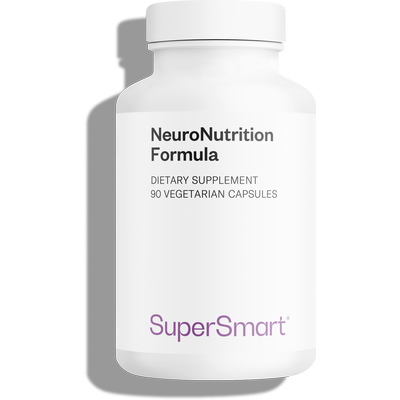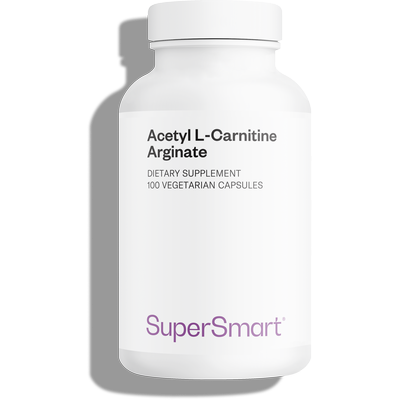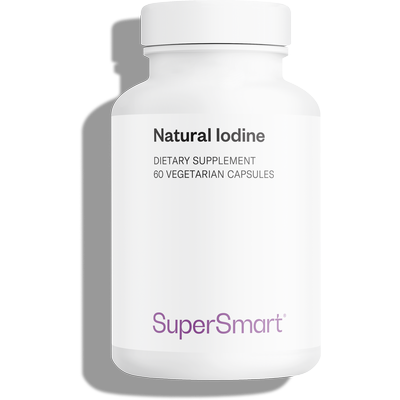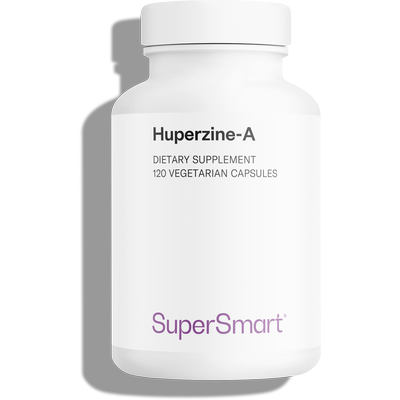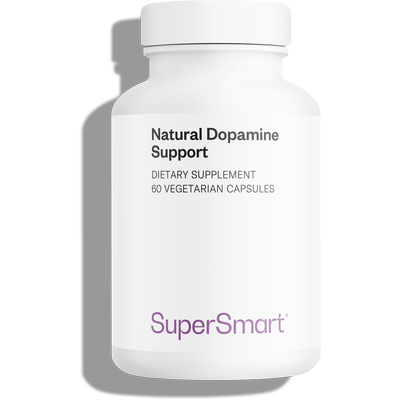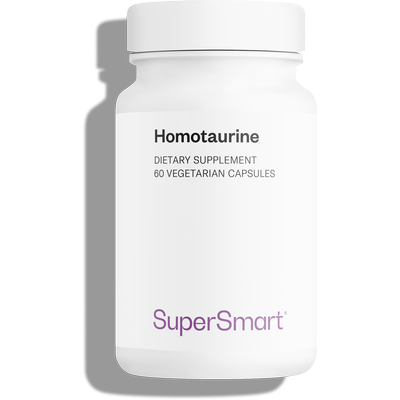In stock
Arctic Plankton Oil + Noopept
Complete your selection
What is in Arctic Plankton Oil + Noopept
Any questions?
Our team of nutrition experts and scientists has the answers.
Arctic Plankton Oil is suitable for all sectors of the population for meeting recommended intakes for omega-3 fatty acids.
In addition, it is particularly recommended for the following groups of people:
- Those with a large waistline (excess abdominal fat).
- Those over 50 (to prevent cognitive decline and cardiovascular problems).
- Those suffering from chronic inflammation.
- Those with hypertension, hypertriglyceridaemia, hypercholesterolaemia or hyperglycaemia.
- Those suffering from fatigue or low mood.
- Those at risk of cardiovascular problems.
In theory, the body is able to produce EPA and DHA from plant-source omega-3 fatty acids, but this source has declined significantly over the last decades due to modern farming methods and changes in our diet (14). What’s more, the rate at which they’re converted is now very low as a result of our inappropriately-high consumption of omega-6 (15). Of far less benefit to the body, these fatty acids are nonetheless ubiquitous in modern processed foods and they mobilise all the enzymes (elongases and desaturases) needed for the conversion of plant-sourced omega-3s into DHA and EPA.
So if you decided to increase your intake of plant-sourced omega-3 fatty acids, you would not see any benefits unless you simultaneously made significant cuts to your omega-6 intake. The fact is, we actually need to consume the same amount of plant omega-3 as we do omega-6, but our actual consumption of omega-6 is 15-50 times greater than that of our plant-sourced omega-3. In excess, omega-6 displace omega-3 and invade cell membranes in their place, resulting in the formation of billions of pro-inflammatory molecules (16-17) which are thought to play a key role in the development and exacerbation of chronic diseases.
This adverse imbalance could be rectified through daily consumption of oily fish rich in EPA and DHA. Unfortunately, however, the level of contamination of these fish and the fact that they’re relatively inaccessible makes this an untenable option... Supplementing with EPA and DHA is thus the simplest and most effective way of rapidly restoring cell membranes to a healthy state.
Following ingestion and absorption, marine-source omega-3 are incorporated into cell membranes in the form of phospholipids. This is a slow process: Arctic Plankton Oil therefore needs to be taken every day for several weeks or even months in order to fully obtain its benefits.
At the end of the supplementation period, the increased intake in omega-3 will be reflected in the composition of the phospholipid membranes. The NAT-2 study showed that supplementation with omega-3 produced a significant increase (up to 70%) in levels of these fatty acids in membranes. To achieve this, it is advisable to reduce your intake of omega-6 throughout the supplementation period.The cetoleic acid and gondoic acid in Arctic Plankton Oil help reduce the excessive proportion of omega-6 which impairs the body’s use of omega-3.
This supplement should be taken at mealtimes. The first effects are seen rapidly but it is advisable to take Arctic Plankton Oil for a period of at least three months. As omega-3 fatty acids penetrate cell membranes gradually, the effects continue for several months after supplementation has ceased.
No intolerance issues are associated with taking Calanus oil.
This dipeptide, comprising proline and glycine (N phenylacetyl-L-prolylglycine ethyl ester), was developed in Russia and patented in 1995. It is prescribed in Russia and neighbouring countries as a nootropic and neuro-protector. n addition, a study on mice showed Noopept to have anti-inflammatory effects linked to its antioxidant properties.
Noopept is recommended at doses of between one and three sublingual tablets a day and it's widely documented as safe with mild side effects observed only rarely at high doses (headaches, insomnia, nausea, fatigue). There is no dependency or interactions with other supplements or drugs that have been identified.
Arctic Plankton Oil is produced from the species Calanus finmarchicus, a minuscule copepod which forms part of marine zooplankton. Measuring less than a millimetre but representing an enormous biological resource (it is without doubt one of the most abundant species on the planet in terms of biomass), Calanus finmarchicus is harvested from the Arctic in strict adherence to both the bioeconomic strategies of Scandinavian countries and the quotas fixed by the Institute of Marine Research. As this species inhabits the lowest trophic levels, there is no risk of the heavy metal contamination typically observed in oily fish.
In the cold waters of the Arctic, which is periodically covered in ice and isolated from pollution, it benefits from an idyllic setting providing the best possible conditions for reproduction and growth .
Click here to see the environment and conditions in which these copepods are harvested: https://www.youtube.com/watch?v=9X5W03gu7eA&t=7s
Most classic omega-3 comes in the form of either triglycerides, ethyl esters or phospholipids. Supplements made from fish oil, such as Super Omega 3, thus contain omega-3 in triglyceride form, while those produced from krill oil (tiny shrimps), like Krill Oil, are in phospholipid form.
In order to use omega-3 chains, the body must first digest them. This takes place in the gut: enzymes called lipases rapidly break down the triglycerides and phospholipids in such a way as to obtain omega-3 chains that can be easily assimilated by the body.
With Arctic Plankton Oil, the process is different. The omega-3 comes in the form of ‘wax esters’, a group of fats of which animal waxes are largely composed. This particular form has greater resistance to gut enzymes which means the omega-3 are able to travel further along the digestive tract.
A significant amount of the omega-3 therefore reaches the distal intestine where cell receptors (GPR120) are able to interact with the marine fatty acids. As these receptors influence the production of hormones that control appetite and blood glucose levels, scientists believe that this form of omega-3 offers additional benefits for metabolism(6-7), particularly for insulin sensitivity and intra-abdominal fat deposits. Obviously, fatty acids in the form of wax esters are broken down completely by enzymes and are then able to act as a foundation for the formation of supple cell membranes, the mechanism behind most of the benefits offered by omega-3 supplementation.
This product’s softgels are of marine origin. Made from fish gelatine, they ensure optimal uptake and are notable for their outstanding purity.
july 4 2023
El aceite de Calanus, lo pienso usar por una temporada, aunque es muy caro, pero tengo la impresion de que es muy bueno. Con respecto al Nooped; puedo decir que el sabor es agradable y hace efecto, despeja la cabeza.
I plan to use Calanus oil for a season, although it is very expensive, but I have the impression that it is very good. Regarding Nooped; I can say that the taste is pleasant and it works, it clears the mind.
 see the translation
Translated by SuperSmart - see the original
see the translation
Translated by SuperSmart - see the original
Need help?
You may also like
of experience
your money back
##montant## purchase

